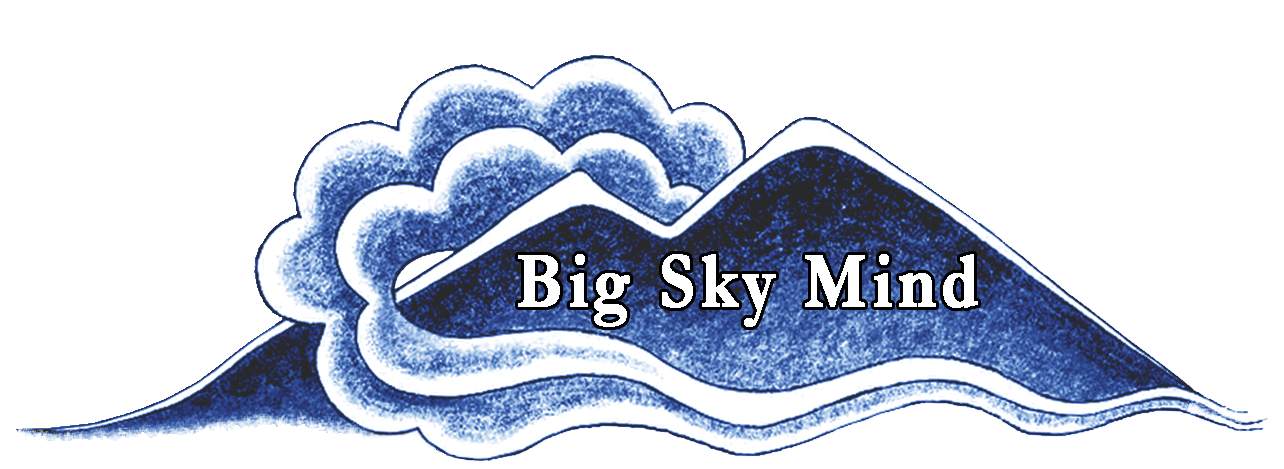LIVING JOYFULLY IN THE WEST
/I recently mentioned to a friend that I planned to teach about “Living Joyfully in the West.” She said, “That’s impossible.” Her point was that in the face of the overwhelming crises of modern life— the suffering, the unhappiness, environmental problems, political problems —the idea of living in joy is just a joke. She may be right. But still, I’m going to try.
It occurs to me that the key to “living in joy” means uniting wisdom and compassion in our lives and our practice, even in a world filled with suffering and problems.
As my students know, my favorite Buddhist quote is from Kalu Rinpoche:
You live in Illusion and the appearance of things.
There is a reality. You are that reality.
Though there is a great deal that could be said about this quote, I’d like to focus on just one thing. The quote makes the point that there are two realities: our daily worldly life with its ups and downs, pleasures and sorrows, joys and frustrations; and the greater, transcendent reality which we could call the spiritual dimension. Tibetan Buddhist masters refer to these two realities as the relative and the absolute.
We all live our lives in both of these two realities all the time. However, the tragedy of the modern, corporate-capitalist world view is that it denies the spiritual dimension of life. In fact, most contemporary people have grown up schooled in the “absence of the sacred.”
Buddha pointed out that when we live in fixation on one reality, and ignor-ance (sic) of the other, we have difficulty. The ills of our times can all be traced to this short-sightedness.
Albert Einstein is articulate on the matter:
A human being is part of the whole called by us ‘universe’—a part limited in time and space. He experiences himself, his thoughts and feelings as separate from the rest—a kind of optical delusion of his consciousness. This delusion is a kind of prison for us, restricting us to our personal desires and to affection for a few persons nearest us.
Laboring under this delusion of the separateness of self and other has allowed us to exploit the assumed ‘other’: the feminine, the earth, etc. Buddha taught that this dualistic outlook not only separates us from other people, but also from the sacred, including our own true sacred nature. We find ourselves constantly at war—with the annoying neighbors, our partners, events turning out in ways we don’t like. In other words, the “other” in all the ways it manifests.
Einstein is echoing the Buddha when he refers to this separateness of self and other as an “optical delusion . . . [of our] consciousness.” His phrase also reminds me of Kalu Rinpoche’s words, “you live in illusion and the appearance of things.”
What is the solution?
The Buddha, Kalu Rinpoche, Einstein, and many other masters from the East and West (another dualistic illusion by the way, but that’s another discussion) agree on the solution.
Einstein continues by saying that we have work to do:
Our task must be to free ourselves from this prison by widening our circle of compassion to embrace all living creatures and with the whole of nature and its beauty.
This illusion, this dualistic split, must be overcome. We must reintegrate ourselves with the other: with nature, with all beings, but most of all with the sacred, with the divine.
Kalu Rinpoche goes on to say:
When you understand this you will see that you are nothing and being nothing you are everything. That is all.
When we realize the non-dual nature of reality, our ego-based, alienated, suffering self dissolves and we awaken to our true selves, to reality, to the divine within.
The poet Deanna Metzger has said of our task:
There are people trying to set the world on fire.
We are in danger.
There is only time to work slowly.
There is never time not to love.
In recent years, many people have become aware of this problem. A few understand its origin, and still fewer see how to solve the problem and stop the suffering. These few authentic seers have always been with us. 2400 years ago Buddha spoke of our need to drop the selfish ego-fixation approach and open to the sacred, welcome it into our lives, fully integrate it into our being.
This is our task - this is how we become buddhas rather than prisoners. One of the words for a buddha is “One who has Gone to Bliss.” By following this path, we can, even in these crazy times, and certainly in the West, live meaningfully, live joyfully.

